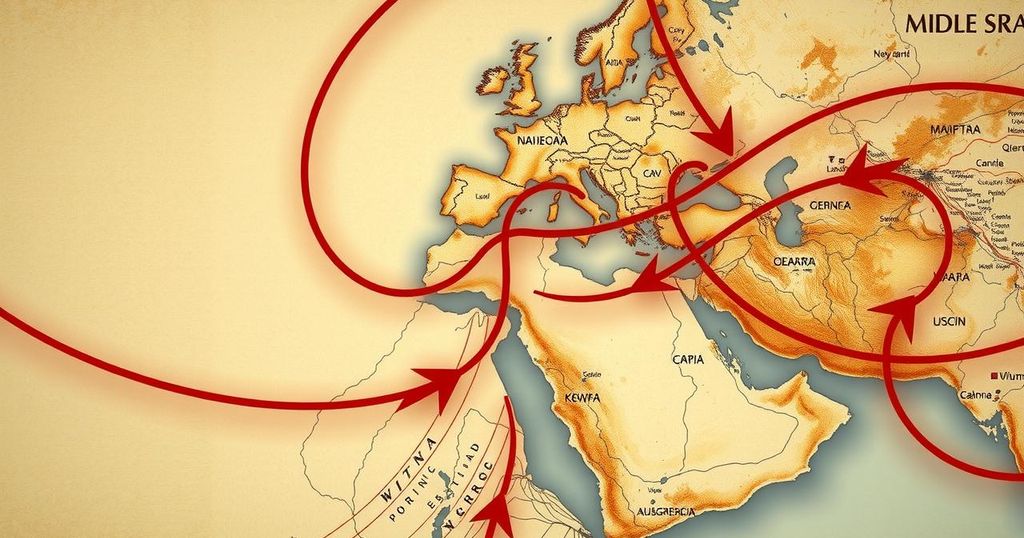The article discusses Jordan’s response to Israeli expansionism in Syria, especially after Syrian President Ahmed al-Sharaa’s visit to Amman. King Abdullah reaffirmed support for Syria’s territorial integrity while highlighting the crucial issues regarding southern Syria. The piece emphasizes the importance of Jordan taking an active role in the region to counter Israeli narratives, protect the Druze community, and ensure national security.
Recent reports from Jordanian media regarding Syrian President Ahmed al-Sharaa’s visit to Amman were minimal. Following the meeting, King Abdullah condemned Israeli air strikes in Syria, reaffirming support for Syria’s territorial integrity and endorsing the voluntary return of Syrian refugees. However, crucial discussions on southern Syria were notably absent from media coverage, such as the Israeli occupation and the unique political landscape affecting the Druze community.
Sharaa’s visit seems prompted by Israeli Prime Minister Benjamin Netanyahu’s claim of preventing Hayat Tahrir al-Sham (HTS) from establishing a foothold in southern Syria. Statements from Israeli officials suggest intentions to protect the rights of Druze and Alawite communities, indicating a broader Israeli strategy for Syria that may encourage sectarian divisions—an agenda favored by the Israeli right.
The context of Sharaa’s visit aligns with critical discussions among Jordanian and Turkish officials about southern Syria’s future following the fall of the Assad regime. Notably, Crown Prince Hussein bin Abdullah recently met with Turkish President Recep Tayyip Erdogan, likely to coordinate strategies concerning the region, particularly regarding the Druze in Sweida province and Israel’s plans.
This situation raises important questions regarding Jordan’s willingness to act actively in southern Syria at HTS’s request. Such actions might involve influencing Druze affairs, ensuring stability in Daraa, or even establishing a military presence along the Syria-Israel border, countering Israeli narratives of distrust towards HTS and concerns over Hamas or Islamic Jihad infiltration.
Historically, Jordan refrained from military involvement in Syria, but the current circumstances present a case for reconsideration. Should HTS seek Jordanian support, it could safeguard Jordan’s strategic interests while reinforcing Syria’s territorial integrity and security concerning Israel’s military influence.
Jordan maintains solid relationships with various communities in southern Syria, particularly the Druze and Arab tribes. This trust can be capitalized upon in collaboration with Damascus to address Israel’s threats, although Jordan has typically avoided foreign military commitments. However, if an agreement with Damascus is reached, supported by Turkey and neighboring states, such involvement could gain legitimacy.
Timeliness is crucial. If King Abdullah and Sharaa did not cover Jordan’s potential involvement during their recent discussions, it is imperative to accelerate such dialogues—possibly through indirect channels with Turkey. Swift action is essential to counteract narratives from the Israeli right in the U.S., which mischaracterizes HTS and claims threats to minority communities in Syria. Inaction on Jordan’s part could have dire consequences for both Syria and Jordan’s national security.
In summary, Jordan’s strategic role in southern Syria is increasingly critical in countering Israeli expansionism. With ongoing discussions and potential collaboration with Turkey and Damascus, Jordan could safeguard its interests while promoting regional stability. The necessity for timely action is emphasized to mitigate adverse narratives and preserve both Syrian territorial integrity and Jordan’s national security.
Original Source: www.middleeasteye.net




